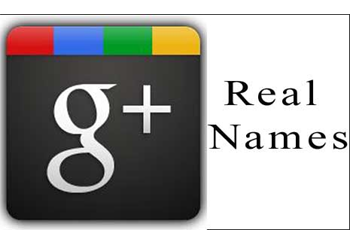A sort of topic-specific collection of links from about the last year, broadly talking about inclusion in communities, online and off, especially in geek(y) spaces.
What kind of discourses and conversations do we want to encourage and have?
- Nalo Hopkinson’s WisCon 2016 Guest of Honor speech: “There are many people who do good in this field, who perform small and large actions of kindness and welcome every day. I’d like to encourage more of that.” In this speech Hopkinson announced the Lemonade Award.
- “Looking back on a decade in online fandom social justice: unexpurgated version”, by sqbr: “And just because I’m avoiding someone socially doesn’t mean I should ignore what they have to say, and won’t end up facing complex ethical choices involving them. My approach right now is to discuss it with people I trust. Figuring out who those people are, and learning to make myself vulnerable in front of them, has been part of the journey.”
- “On conversations”, by Katherine Daniels: “I would love for these people who have had so many opportunities already given to them to think about what they are taking away from our collective conversations by continuing to dominate them, and to maybe take a step back and suggest someone else for that opportunity to speak instead.”
- “Towards a More Welcoming War” by Mary Anne Mohanraj (originally published in WisCon Chronicles 9: Intersections and Alliances, Aqueduct Press, 2015): “This is where I start thinking about what makes an effective community intervention. This is where I wish I knew some people well enough to pick up a phone.”
- “The chemistry of discourse”, by Abi Sutherland: “What we really need for free speech is a varied ecosystem of different moderators, different regimes, different conversations. How do those spaces relate to one another when Twitter, Reddit, and the chans flatten the subcultural walls between them?”
- “Hot Allostatic Load”, by porpentine, in The New Inquiry: “This is about disposability from a trans feminine perspective, through the lens of an artistic career. It’s about being human trash….Call-out Culture as Ritual Disposability”
- “The Ethics of Mob Justice”, by Sady Doyle, in In These Times: “But, again, there’s no eliminating the existence of Internet shaming, even if you wanted to—and if you did, you’d eliminate a lot of healthy dialogue and teachable moments right along with it. At best, progressive people who recognize the necessity of some healthy shame can only alter the forms shaming takes.”
How do we reduce online harassment?
- “Paths: a YA comic about online harassment”, by Mikki Kendall: “‘It’s not that big of a deal. She’ll get over it.’ ‘Even if she does, that doesn’t make this okay. What’s wrong with you?'”
- “On a technicality”, by Eevee: “There’s a human tendency to measure peace as though it were the inverse of volume: the louder people get, the less peaceful it is. We then try to optimize for the least arguing.”
- “Moderating Harassment in Twitter with Blockbots”, by ethnographer R. Stuart Geiger, on the Berkeley Institute for Data Science site: “In the paper, I analyze blockbot projects as counterpublics…I found a substantial amount of collective sensemaking in these groups, which can be seen in the intense debates that sometimes take place over defining standards of blockworthyness…..I also think it is important distinguish between the right to speak and the right to be heard, particularly in privately owned social networking sites.”
- “The Real Name Fallacy”, by J. Nathan Matias, on The Coral Project site: “People often say that online behavior would improve if every comment system forced people to use their real names….Yet the balance of experimental evidence over the past thirty years suggests that this is not the case. Not only would removing anonymity fail to consistently improve online community behavior – forcing real names in online communities could also increase discrimination and worsen harassment….designers need to commit to testing the outcomes of efforts at preventing and responding to social problems.”
What does it take to make your community more inclusive?
- “Want more inclusivity at your conference? Add childcare.” by Mel Chua and then “Beyond ‘Childcare Available’: 4 Tips for Making Events Parent-Friendly”, by Camille Acey: “I’ve pulled together a few ideas to help move ‘Childcare Available’ from just a word on a page to an actual living breathing service that empowers people with children to learn/grow alongside their peers, engage in projects they care about, and frankly just have a little break from the rigors of childcare.”
- Project Hearing: “Project Hearing is a website that consolidates information about technology tools, websites, and applications that deaf and hard of hearing people can use to move around in the hearing world.”
- “Conference access, and related topics”, by Emily Short: “This is an area where different forms of accessibility are often going at right angles.”
- “SciPy 2016 Retrospective”, by Camille Scott: “SciPy, by my account, is a curious microcosm of the academic open source community as a whole.”
- “Notes from Abstractions”, by Coral Sheldon-Hess: “Pittsburgh’s Code & Supply just held a huge (1500 people) conference over the last three days, and of course I’d signed up to attend months ago, because 1) local 2) affordable 3) tech conference 4) with a code of conduct they seemed serious about. Plus, “Abstractions” is a really cool name for a tech conference.”
- “The letter I just sent to Odyssey Con”, by Sigrid Ellis: “None of us can know the future, of course. And I always hope for the best, from everyone. But I would hate for Odyssey Con to find itself in the midst of another controversy with these men at the center.” (This is Ellis’s post from April 7, 2016, a year before all three of Odyssey Con’s Guests of Honor chose not to attend Odyssey Con because of the very issue Ellis discussed.)
- “The realities of organizing a community tech conference: an ill-advised rant”, by Rebecca Miller-Webster: “…there’s a lot of unpaid labor that happens at conferences, especially community conferences, that no one seems to talk about. The unpaid labor of conference organizers. Not only do people not talk about it, but in the narrative around conferences as work, these participants are almost always the bad guys.”
- “Emotional Labor and Diversity in Community Management”, by Jeremy Preacher, originally a speech in the Community Management Summit at Game Developers Conference 2016: “The thing with emotional labor is that it’s generally invisible — both to the people benefiting from the work, and to the people doing it. People who are good at it tend to do it unconsciously — it’s one of the things we’re talking about when we say a community manager has ‘good instincts’.”….What all of these strategies do, what thinking about the emotional labor cost of participation adds up to, is make space for your lurkers to join in.”
- “White Corporate Feminism”, by Sarah Sharp: “Even though Grace Hopper was hosted in Atlanta that year, a city that is 56% African American, there weren’t that many women of color attending.”
- “You say hello”, by wundergeek on “Go Make Me a Sandwich (how not to sell games to women)”: “Of course, this is made harder by the fact that I hate losing. And there will be people who will celebrate, people who call this a victory, which only intensifies my feelings of defeat. My feelings of weakness. I feel like I’m giving up, and it kills me because I’m competitive! I’m contrary! Telling me not to do a thing is enough to make me want to do the thing. I don’t give up on things and I hate losing. But in this situation, I have to accept that there is no winning play. No win condition. I’m one person at war with an entire culture, and there just aren’t enough people who give a damn, and I’m not willing to continue sacrificing my health and well-being on the altar of moral obligation. If this fight is so important, then let someone else fight it for a while.”
- “No One Should Feel Alone”, by Natalie Luhrs: “In addition to listening and believing–which is 101 level work, honestly–there are other things we can do: we can hold space for people to speak their truth and we can hold everyone to account, regardless of their social or professional position in our community. We can look out for newcomers–writers and fans alike–and make them welcome and follow through on our promise that we will have their backs. We can try to help people form connections with each other, so they are not isolated and alone.”
- “Equality Credentials”, by Sara Ahmed: “Feminist work in addressing institutional failure can be used as evidence of institutional success. The very labour of feminist critique can end up supporting what is being critiqued. The tools you introduce to address a problem can be used as indicators that a problem has been addressed.”
- “Shock and Care: an essay about art, politics and responsibility”, by Harry Giles (Content note: includes discussion of sex, violence and self-injury in an artistic context): “So, in a political situation in which care is both exceptionally necessary and exceptionally underprovided, acts of care begin to look politically radical. To care is to act against the grain of social and economic orthodoxy: to advocate care is, in the present moment, to advocate a kind of political rupture. But by its nature, care must be a rupture which involves taking account of, centring, and, most importantly, taking responsibility for those for whom you are caring. Is providing care thus a valuable avenue of artistic exploration? Is the art of care a form of radical political art? Is care, in a society which devalues care, itself shocking?”

